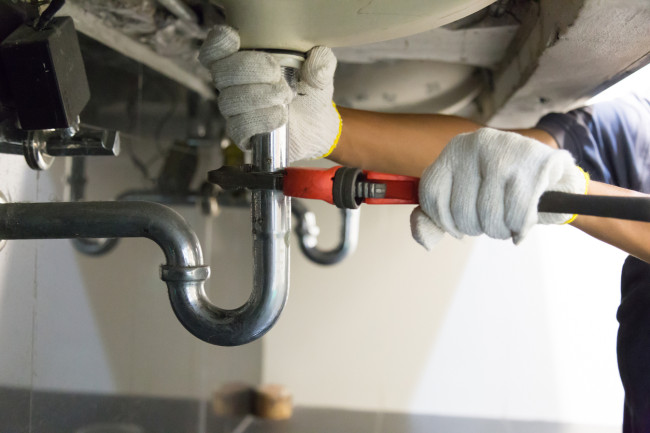The gas is off in my NYC building. Can I get a rent abatement and lower rent when I renew?
- You may be able to get a rent abatement in the 10 to 20 percent range
- You can also ask for a 15 to 20 percent reduction in rent at renewal time

Inspections frequently result in the gas being turned off—a rent abatement and a lower rent at lease renewal time are both possible.
Michelle Mahlke-Sloniecki/iStock/Getty Images Plus via Getty Images
I am renting a one bedroom in Turtle Bay for $4,000. The gas has been off in our building since September so I have no stove and the dryers in the laundry room aren't working. Can I use this to push back against a rent increase?
If the gas is turned off in your New York City rental building, you may be able to get a rent abatement—and when your lease is up for renewal, you should certainly negotiate against a rent increase, our experts say.
Gas leaks in any building can be extremely dangerous and Local Law 152 requires gas lines to be inspected every four years. As a result of these inspections, it's not uncommon to have the gas turned off for many weeks. “It can sometimes take months to get the gas back on,” says tenant attorney Sam Himmelstein, a partner at Himmelstein McConnell Gribbin & Joseph (and a Brick Underground sponsor).
“When a tenant doesn't have gas, they are generally entitled to an abatement of somewhere between 10 and 20 percent,” he says. If the gas affects multiple appliances—as in this case—the abatement might be even higher.
This issue was addressed recently during Brick Underground Office Hours—a live forum for your questions. To find out about our next event subscribe to our newsletter.
Negotiating a rent abatement
You can ask for a rent abatement if the gas in your building is turned off. If the apartment is a condo owned by an individual—rather than an apartment in a rental building—you can simply approach the landlord with your request. If it's a rental building, Himmelstein says there’s always strength in numbers: “When tenants band together in these situations, landlords will generally agree to an abatement until the gas is restored,” he says.
You are legally entitled to form a tenant association in your rental building and forming a group actually gives you extra protections against eviction or retaliatory behavior by the landlord. If you don’t know your neighbors, now’s the time to introduce yourself. Creating a tenant’s association also means you can split legal fees if and when the need arises.
Pursuing a rent abatement through the courts is more complicated. “You would have to withhold rent, the landlord would sue you, you'd ask the judge for an abatement,” Himmelstein says.
Managing attorney Jennifer Rozen, president of Rozen Law Group, says filing an HP action in housing court may give you leverage at lease renewal time. It would also give you "a retaliatory eviction claim if the condo owner attempts to raise the rent significantly or if they refuse to renew in response to the filing of an HP action," she says.
Using the situation to negotiate at renewal time
When your lease is up for renewal, it always makes sense to negotiate for a lower rent. You may not be successful but there’s no harm in trying. A lack of gas would certainly be “a chip on your side of the bargaining table,” Himmelstein says.
"Certainly the timeline by which gas will be restored is out of the control of the condo owner, so it's in their best interest to continue renting to the tenant in place," Rozen says. You can present the situation politely to your landlord: It will be difficult for the owner to rent to a new tenant while the apartment and the building lacks gas for cooking and laundry.
Rozen advises using the lack of gas as a means to get the lease renewal at the same or lower rate. Himmelstein suggests you could ask for a rent reduction of 15 or 20 percent.
You Might Also Like



























